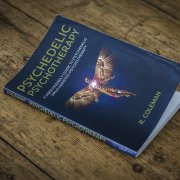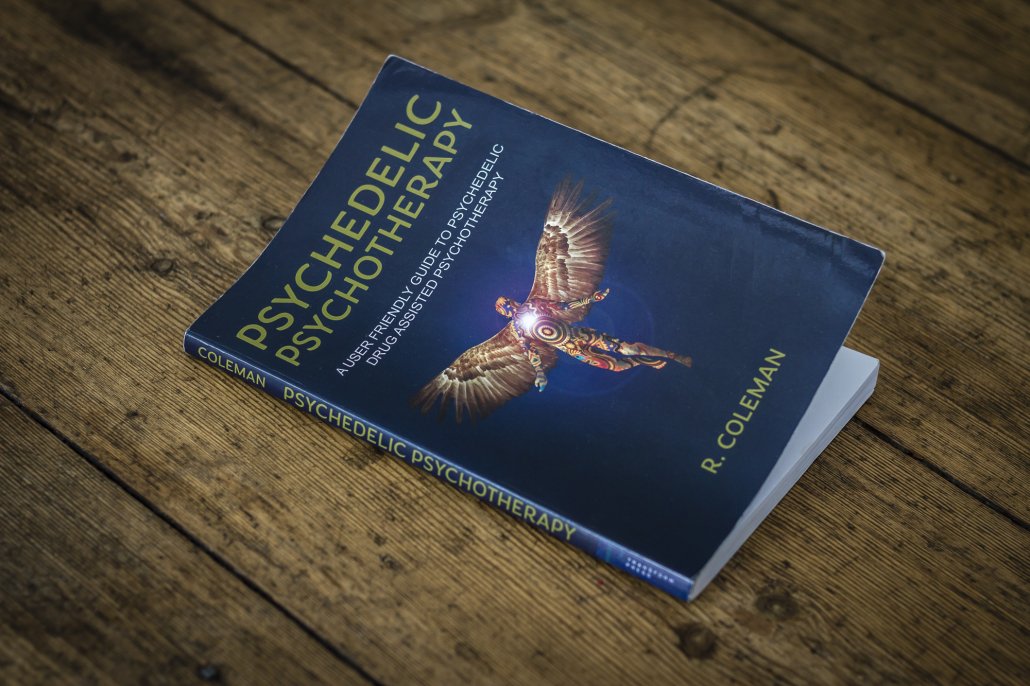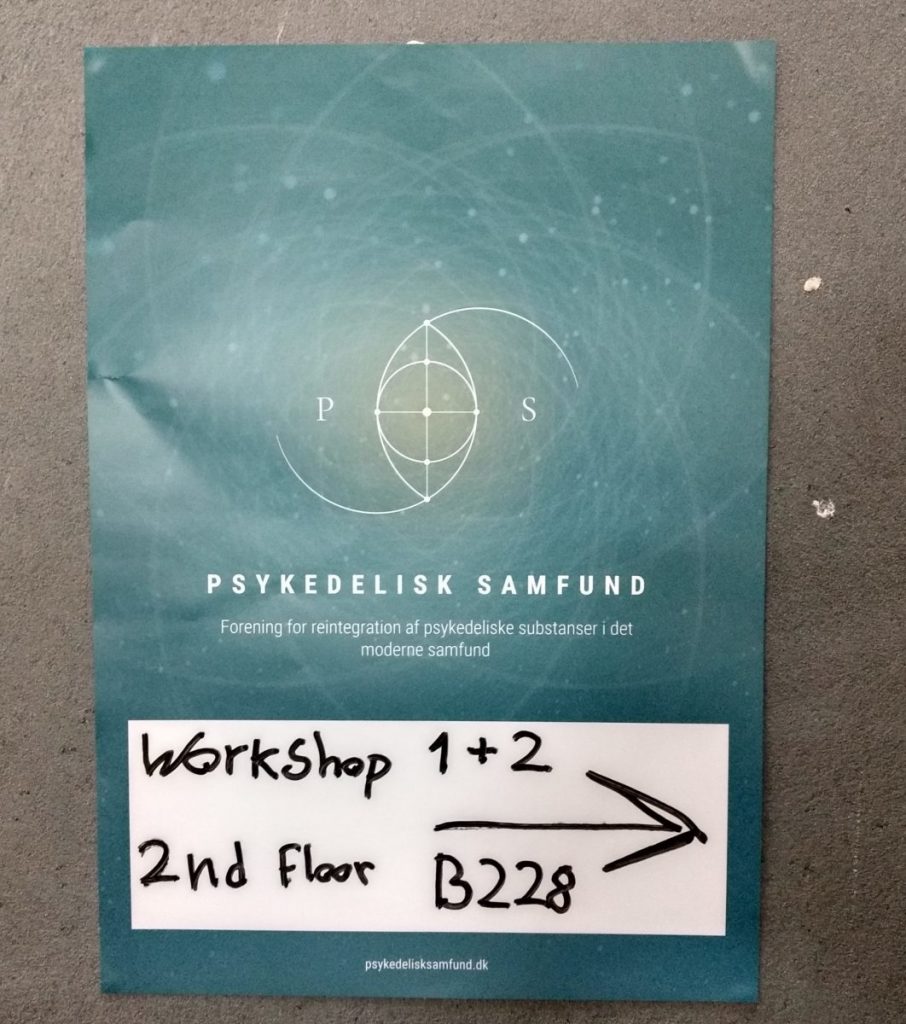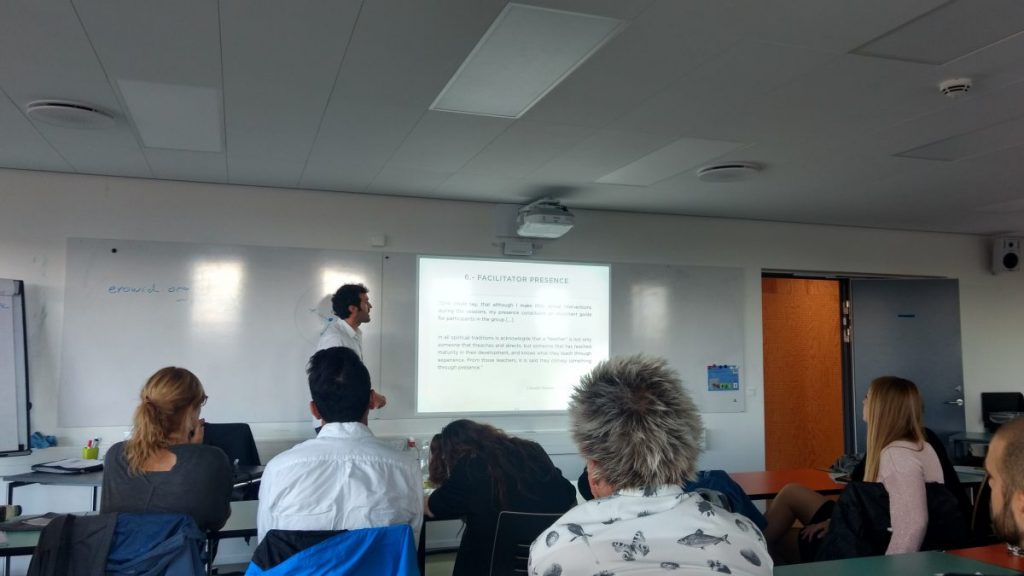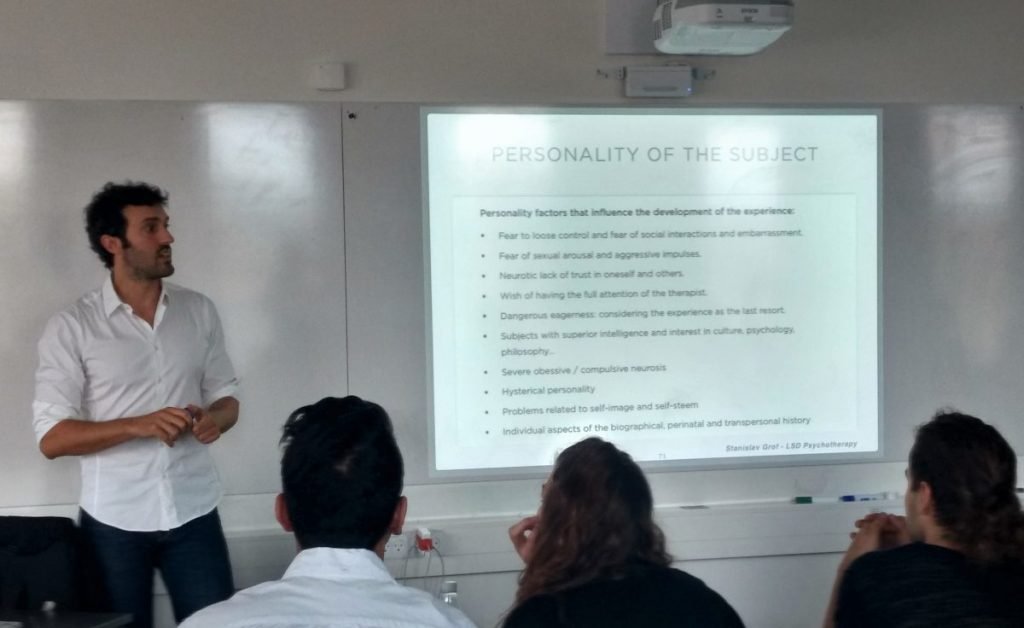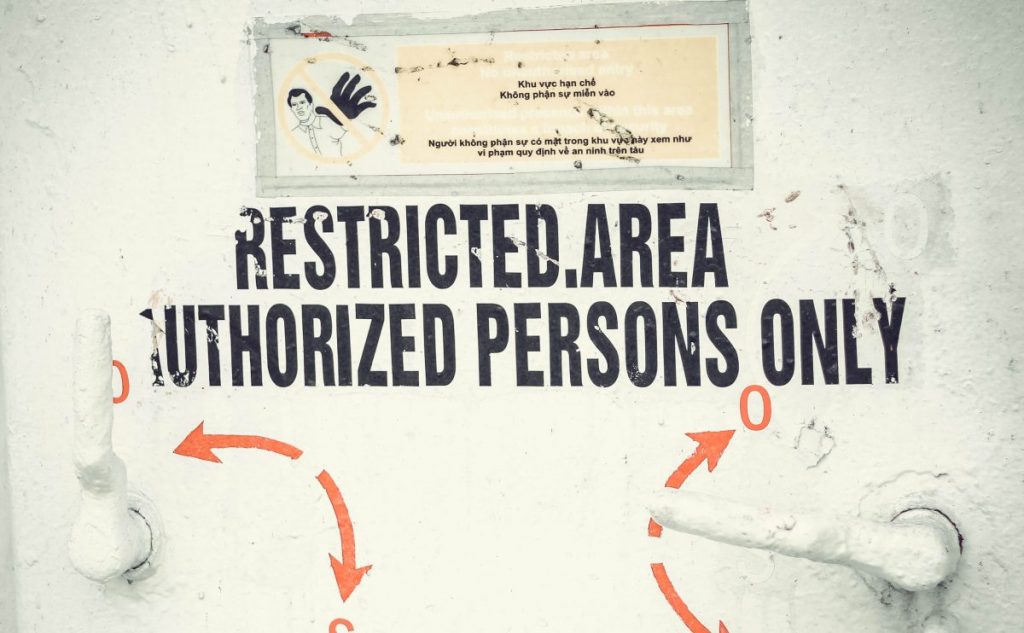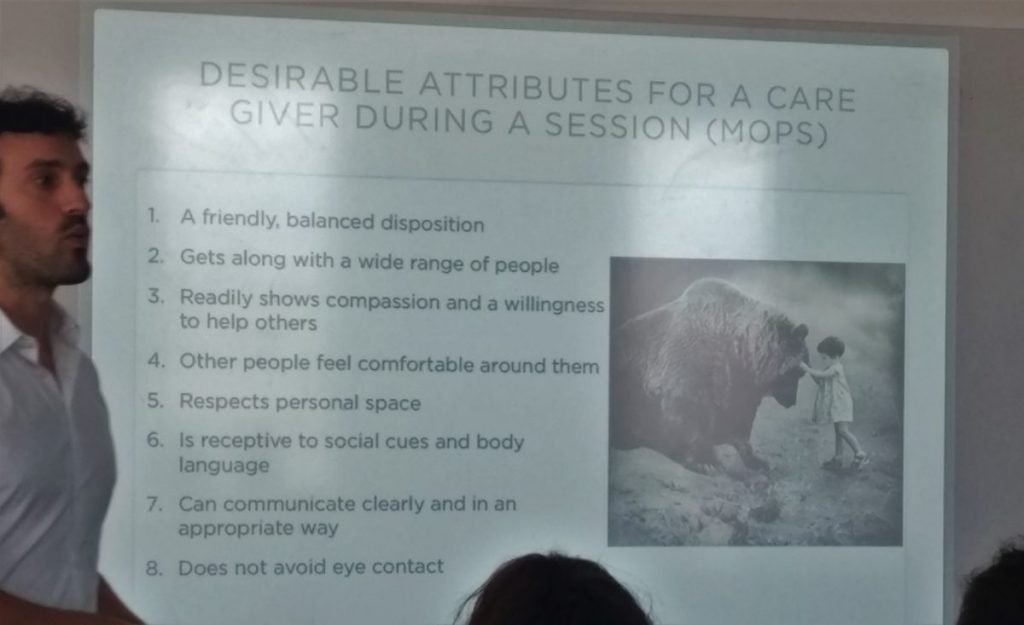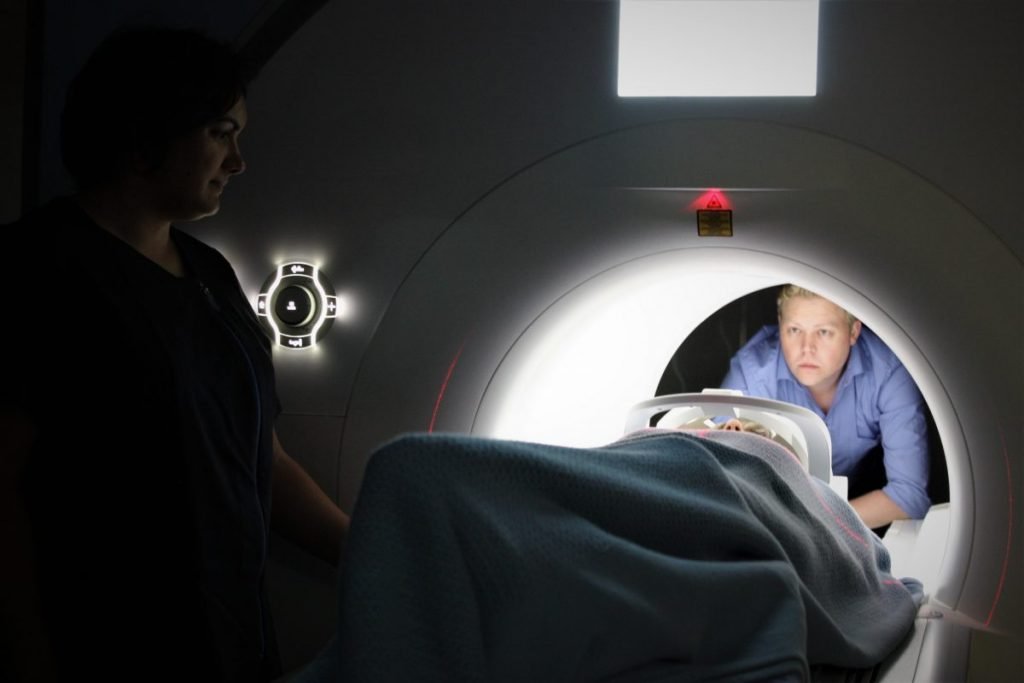Good day, welcome to 4th PSYJuly! Today we have a post coming from my good friend Ekaterine Kobaladze. Me and Kat first met at a meditation circle a few years now and I’m pleased to share her piece on a topic which a couple of readers have recently told me that they’d like to learn more about: tripsitting. Here’s Kat…
Chapter Summary from Psychedelic Psychotherapy by R. Coleman
As a psychology student and an aspiring sitter, I found the book Psychedelic Psychotherapy by R. Coleman to be extremely informative and helpful. The book is packed with lots of practical advice for those who would like to offer tripsitting or have a psychedelic experience of their own.
In this post, I will be focusing on the specific chapter which offers important guidelines for prospective sitters. Below are the notes I have collected and organised from Chapter 6.
Chapter 6: Guidelines for The Sitter
Keeping it safe
Your most important role as a sitter is to make sure the journeyer doesn’t hurt himself or damage anything within the setting. Be prepared to encounter possible anger release, for which you might need to provide props such as pillows or even a punching bag. In some cases, you may notice suicidal or injury-producing behavior such as hitting oneself or pulling one’s hair. You can prevent further self-harm by compassionately commenting something like, “you’ve been hurt already. Please don’t hurt yourself.” Reminding them to breathe deeply is always a good idea.
Sexual boundaries
NEVER ALLOW ANYTHING SEXUAL TO HAPPEN BETWEEN THE JOURNEYER AND THE SITTER.
It could be that the journeyer starts to act out their past sexual trauma. They might try to seduce you into participating in their sexual healing, however, make sure you don’t engage and gently remind them about the rule against any sexual interaction. You can point out their best qualities such as intelligence and courage in order to assure them that they are valued beyond their sexuality. You may say, “I admire these traits in you and hope you will come to see how valuable you are because of them.”
On the other hand, appropriate and non-sexual touch such as holding a hand or hugging can be really beneficial to the journeyer. Make sure to always ask their permission before proceeding with any physical contact. In addition, beware that the initiated physical touch does not stem from your own needs. You must agree in advance that if the touch no longer feels comfortable to the journeyer you will stop it or modify it.
Despite the strict sexual boundaries between you, the journeyer should feel safe exploring their own sexuality in a non-shaming and confidential setting. It should be welcomed to openly talk about sex and express one’s fantasies, even if they’re shameful. Getting naked, feeling one’s own genitals, and even masturbation should be accepted, as long as the latter falls within mutually agreed-upon boundaries. If you prefer, you may offer them a blanket to cover themselves, leave the room, or simply turn your back. It is also important for you to distinguish when the journeyer is masturbating in order to heal and not trying to avoid difficult feelings. In addition, refrain from expressing your own sexual beliefs or judgments.
Presence
You will need to give your undivided attention and emotional support to the journeyer whose feelings and thoughts were neglected in childhood. You also need to be authentic and genuine, as the journeyer can notice false comments and dishonest behavior right away. Honor the times when the journeyer asks for privacy and space until they need you back.
Focusing Coach
As a sitter, you need to be on the lookout to direct the journeyer away from intellectualizing, spacing out, or avoiding uncomfortable feelings. Beginner journeyers might need to be frequently reminded to let go of their intellectual need to know. They need to keep in mind that analyzing can be done after the journey has ended. Remind them that feeling, not thinking is the true guide on the journey.
If the journeyer has a hard time surrendering to the experience and becomes fearful, you may offer them reassuring words such as “It’s okay, you’re safe. I’m here holding your hand.” Difficult parts of the journey will require you to remind the journeyer to breathe fully either by verbal reminders or by breathing out loud yourself. If you notice that the journeyer is spacing out, you can try to ground them by a form of physical contact such as a massage or bodywork. If the journeyer isn’t ready for physical touch, you can coach them to stretch, rub their hands and feet, or make any other movement that encourages the feeling of being in their body. If the journeyer starts to shake, thrash about, or spasm during a difficult part, you might want to reassure them that they are releasing negative stuff from their bodies. When guiding the journeyer, make sure you communicate with reminders and suggestions rather than commands.
Re-Parenting
The journeyers who were emotionally or physically neglected in childhood by their parents may spontaneously age-regress. Your embrace such as gentle back/belly rubs, hugs, and a foot massage can be very healing. However, remember to always ask the journeyer permission before initiating any of these forms of contact. In addition, having props such as a teddy bear, baby bottle, or a pacifier on hand might also be helpful in soothing such states. Offering reassuring comments such as “That must’ve really hurt.” “I’m so sad that happened to you. You didn’t deserve that” can also be very helpful.
Witness/Record Keeper
A sitter should try to record anything important that takes place. These include substances, dosages, and times when they are taken. Try to document your observations of significant activities, body movements, words, and anything else that may seem important. This information can help the journeyer make sense of their experience after the journey and draw meaningful insights from it.
Deejay
Music has the power to encourage relaxation and induce emotions. It is recommended that the music playlist consists of mostly instrumental, ambient, and non-intrusive pieces. It can also include soft chanting, Kirtan, and trance-inducing drumming. It is good to discuss musical options beforehand as it could be that the journeyer prefers silence.
Outside Contact
It is never a good idea to allow the journeyer to make a call, text, or go see someone in the middle of their journey. Try to talk them out of such behavior until they have reached the end of the experience. However, if there is a private backyard, natural settings, or isolated nature available, they can definitely benefit from exploring them.
Primitive Behavior
Be prepared for some primitive behavior to come up such as screaming, thrashing, throwing up, unleashing rage, animalistic behavior, etc. The journeyers can easily detect if you’re freaked out and will perceive their behavior as something wrong. Show acceptance if something like that happens.
Magnified Transference
Journeyer’s repressed memories can sometimes show up as transference hallucinations and be projected onto the sitter. They might believe that the sitter is judgmental, is angry with them, or doesn’t care about them. As a sitter, you should encourage sharing of these feelings and respond kindly. If the transference hallucinations take place, make sure you NEVER play the role of a perpetrator.
Patience
Being a sitter is fascinating work but it can also be draining or boring. You will have to be present and attentive to the journeyer for 6-8 hours. You will need to listen, be attentive, and responsive. You might have to witness the journeyer’s emotional release, repetitive phrases, or silence. Be sure to remain compassionate and not interfere prematurely to try to induce something in the journeyer’s experience.
Silence is Golden
As a sitter, you should avoid excessive talking. Your comments should be short and expressed in simple language. Refrain from, analyzing/interpreting or preaching. When in doubt, don’t say anything.
The Sitter’s Pre-journey Briefing
To avoid unnecessary complications, it’s a good idea for the sitter to discuss rules and guidelines before the experience with the new journeyer. The following is the summary of the author’s sample directive:
- Every journey is different and there is no right way to do it.
- Most profound healing happens beyond thoughts and words.
- Everyone has a unique healing path and I can not offer the universal treatment plan to you.
- It’s important you share it with me when I’m being too talkative, directive, or silent.
- Unaddressed tension between us can really get in the way of a successful journey and it’s crucial you let me know if something I do or say annoys you or makes you feel uncomfortable.
- You do not need to report everything to me as talking might remove you from the experience. We can talk about important points after the session.
- Breathing plays a big role in the healing process so I will be persistent with returning your attention back to your breath.
- I will take care of your comfort needs as long as you let me know if you’re thirsty, too cold, too hot, etc.
- If the chosen music isn’t working for you let me know so I can change it or turn it off.
- Boundaries on appropriate behavior:
Touch – I will never initiate a touch without asking first. Feel free to ask if you need to hold my hand. If you feel discomfort with my touch at any moment, let me know.
Sex – dealing with sexual feelings and matter is honorable but nothing sexual will ever be allowed between us.
Anger – my boundaries include that you are not allowed to harm me or my stuff. Nevertheless, this is a safe space to release anger by screaming, punching a pillow, etc.
11. Sitter’s needs: I will need to eat, use the bathroom, or stretch at some point. I will be with you the entire time unless you need some time alone.
12.Whatever happens and is being said will be confidential.
13. On a high dose of psilocybin, you could sometimes feel like you’re going crazy or dying. Rest assured that this is a safe, transformational, and temporary process.
Conclusion
Holding space as a sitter can be very exciting but also nerve-racking when you’re just starting out. You might feel worried that you’re too incompetent or fear that you can’t manage to keep things under control. These concerns are completely valid and it is natural to feel anxious before offering your very first sitting. However, I believe that studying great books such as Psychedelic Psychotherapy can equip you with necessary practical knowledge for successfully navigating your first experience. Although the notes above can be very helpful, I highly recommend reading the chapter itself (and the entire book, if possible). It can be particularly useful for the sitters who want to learn more about dealing with the journeyers who have a history of trauma and abuse.

